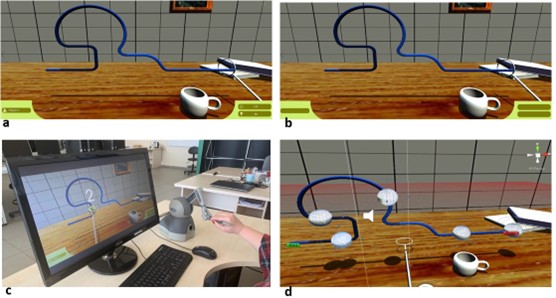Influence of gamification on skill-based training of surgical residents
DOI:
https://doi.org/10.17083/ijsg.v12i1.833Keywords:
Flow theory, gamification, surgical education, simulation, engagementAbstract
Potentially games increase motivation and thus support the learning process. Gamification effect on different skill levels of surgical residents was limitedly studied. This study aims to better understand the effect of motivation gained through gamification on simulation-based surgical training environments for novice and intermediate surgical residents' performances. An educational scenario with a haptic interface is designed in two versions: gamified and non-gamified. The tasks are performed twice, with the dominant and non-dominant hands resemble the task difficulty. 26 novice and intermediate surgical residents were randomly assigned to one of the groups (gamified or non-gamified). Gamification positively improved novice surgical residents’ performances under both hand conditions. However, surprisingly, in some situations, results indicated lower performance by the intermediates compared to the novices. A flow model for this specific scenario is proposed. To benefit the gamification effect, learners’ skill levels and content should be carefully assessed and balanced on simulation-based surgical skill training materials.

Downloads
Published
Issue
Section
License
Copyright (c) 2025 Damla Topalli, Gul Tokdemir, Nergiz Ercil Cagiltay

This work is licensed under a Creative Commons Attribution-NonCommercial-NoDerivatives 4.0 International License.
IJSG copyright information is provided here.